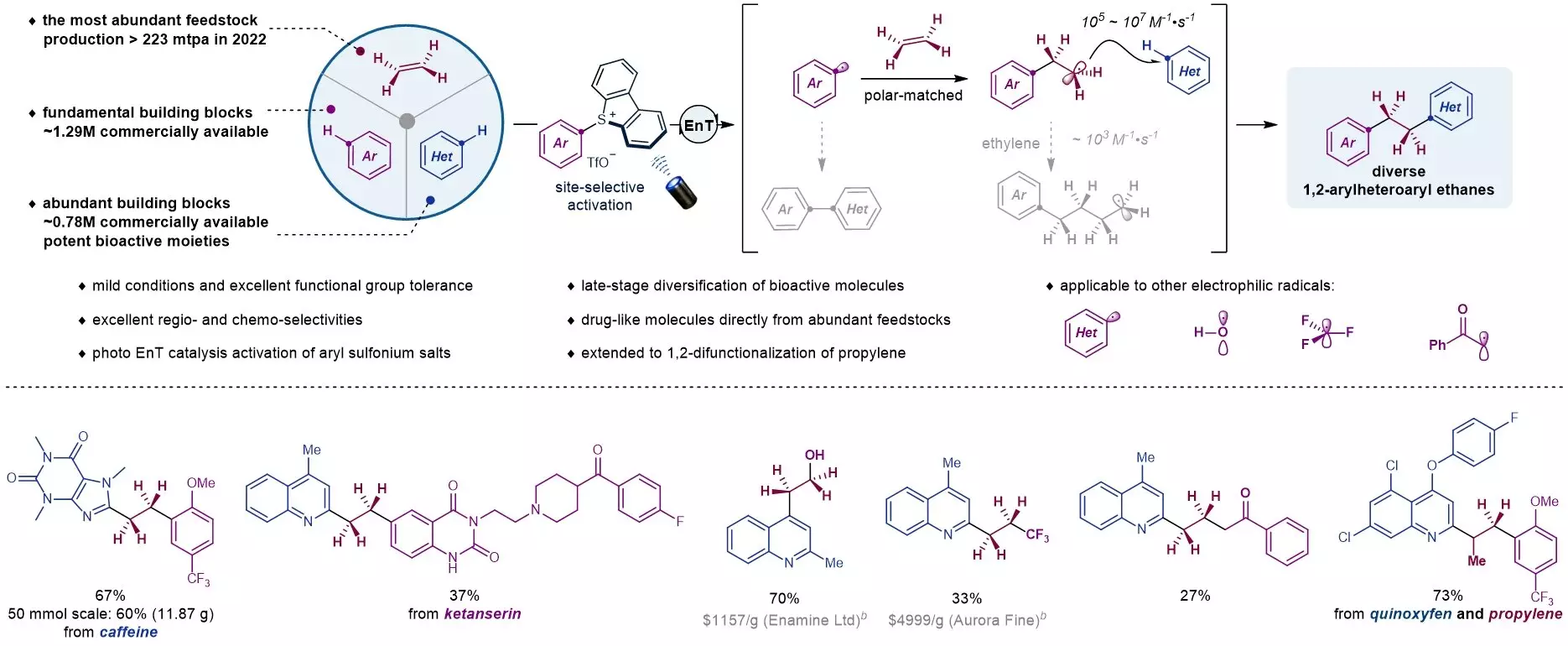Chemists at the National University of Singapore (NUS) have made significant progress in the field of organic synthesis by developing a modular approach to create 1,2-arylheteroaryl ethanes. These compounds play a crucial role in drug discovery and pharmaceutical development, offering a pathway to molecular diversity through the strategic assembly of basic feedstocks.
The Importance of Feedstock Chemicals
The use of fundamental feedstock chemicals such as ethylene, arenes, and heteroarenes is essential in advancing organic synthesis, particularly in the pharmaceutical industry. These chemicals allow researchers to explore new synthetic pathways, improve chemical reactions, and customize molecular structures for drug development.
Challenges in Traditional Synthesis Methods
Traditional synthesis methods for 1,2-arylheteroaryl ethanes often face challenges such as reliance on pre-functionalized synthons, lengthy synthetic routes, limited substrate compatibility, and demanding reaction conditions. These challenges hinder the efficient production of complex structures crucial for pharmaceutical applications.
The Breakthrough in Modular Assembly
Associate Professor Wu Jie and his research team at NUS have successfully addressed these challenges with a new approach that utilizes light to initiate the generation of aryl radicals from aryl sulfonium salts. These aryl radicals, reactive intermediates in organic reactions, then react with ethylene and heteroarenes to form the desired chemical compound.
This innovative method not only streamlines the synthesis of 1,2-arylheteroaryl ethanes but also enables the production of other valuable fine chemicals using different radical precursors, gaseous alkenes, and heteroarenes molecules. By coupling multiple fundamental components, this approach could revolutionize the drug discovery and petrochemical industries by allowing the modular and sustainable production of diverse molecular scaffolds.
To add practicality to this synthetic protocol, a simple in-house built circulation flow system has been employed. Professor Wu highlighted the team’s focus on synthesizing valuable fine chemicals from natural gases, emphasizing the importance of innovative, on-demand assembly strategies in the research and development process.
The modular approach to creating 1,2-arylheteroaryl ethanes offers a promising avenue for enhancing drug discovery and pharmaceutical development through the efficient utilization of basic feedstock chemicals. By overcoming traditional synthesis challenges and embracing innovative strategies, researchers can unlock new possibilities in organic synthesis and pave the way for the production of valuable fine chemicals in a sustainable and modular manner.


Leave a Reply